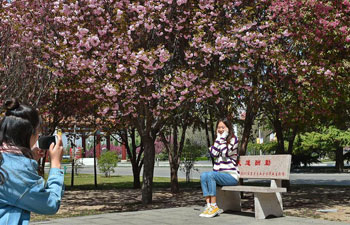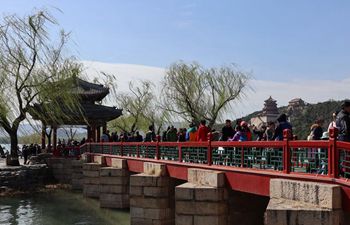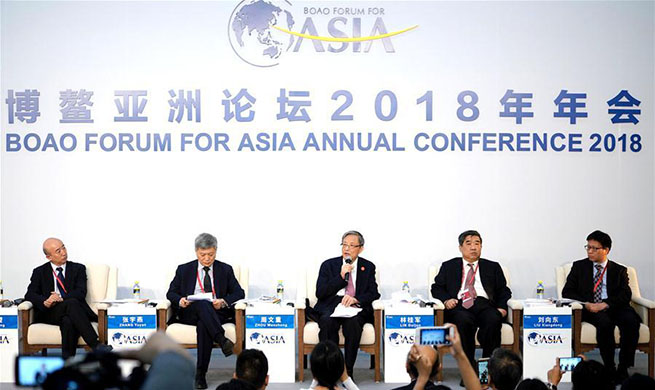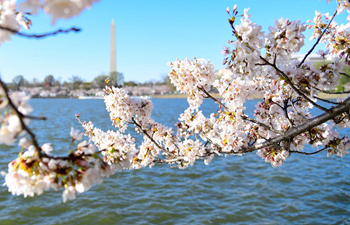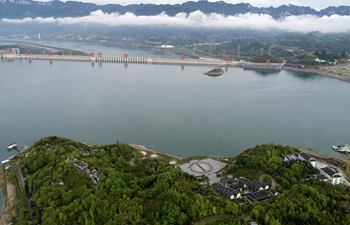BEIJING, April 8 (Xinhua) -- In a baby care room in a shopping mall in Fengtai District of Beijing, new mom Yang Min scans a QR code to receive a sample pack of diaper from a vending machine.
By paying just 0.01 yuan (0.0016 U.S. dollar), she can try the new diaper on her two-month-old baby while she takes a break in the first baby care room set up by Tmall.com, China's online retail platform operated by Alibaba Group. The light in the room is voice-activated and moms can purchase necessities such as wet wipes and formula.
"Babies become hungry or sleepy frequently, and it is very convenient to breastfeed or rest here," Yang said.
Facilities for breastfeeding and diaper-changing in public areas have long been almost non-existent in the world's most populous country. Catering to the increasingly strong demand for such services, Tmall announced earlier this year that it plans to build or renovate 1,000 baby care rooms in the next two years in major cities including Beijing, Shanghai, and Hangzhou.
These rooms will be located in shopping malls, communities, and other densely-populated public areas. Each room will be equipped with basic facilities such as a diaper-changing table and a sofa. There will also be a vending machine and an advertising screen for business partners.
"We estimate it costs around 500,000 yuan per year to operate a baby care room excluding the cost of staffing and rent," said Gong Kunpeng with Tmall.com. "So we hope by cooperating with different brands, we can make the service more sustainable."
China has been improving child care facilities in recent years as part of an initiative to support the two-child policy and optimize family planning services.
In November 2016, several Chinese government departments including the National Development and Reform Commission jointly released a guideline that said public spaces such as traffic hubs, business centers, hospitals, sightseeing and entertainment venues with a floor area of over 10,000 square meters, or a daily flow of more than 10,000 passengers, should have a baby care room of no less than 10 square meters.
Ye Xiaomin, an official with the Beijing Municipal Health Commission, believes the participation of companies in improving these facilities can be an important supplement to government resources.
"The government encourages the involvement of companies and businesses in improving social facilities, but we hope the services can be sustainable given that baby care rooms are currently at various levels in terms of maintenance, operation, and level of facilities under different operators," Ye said.





